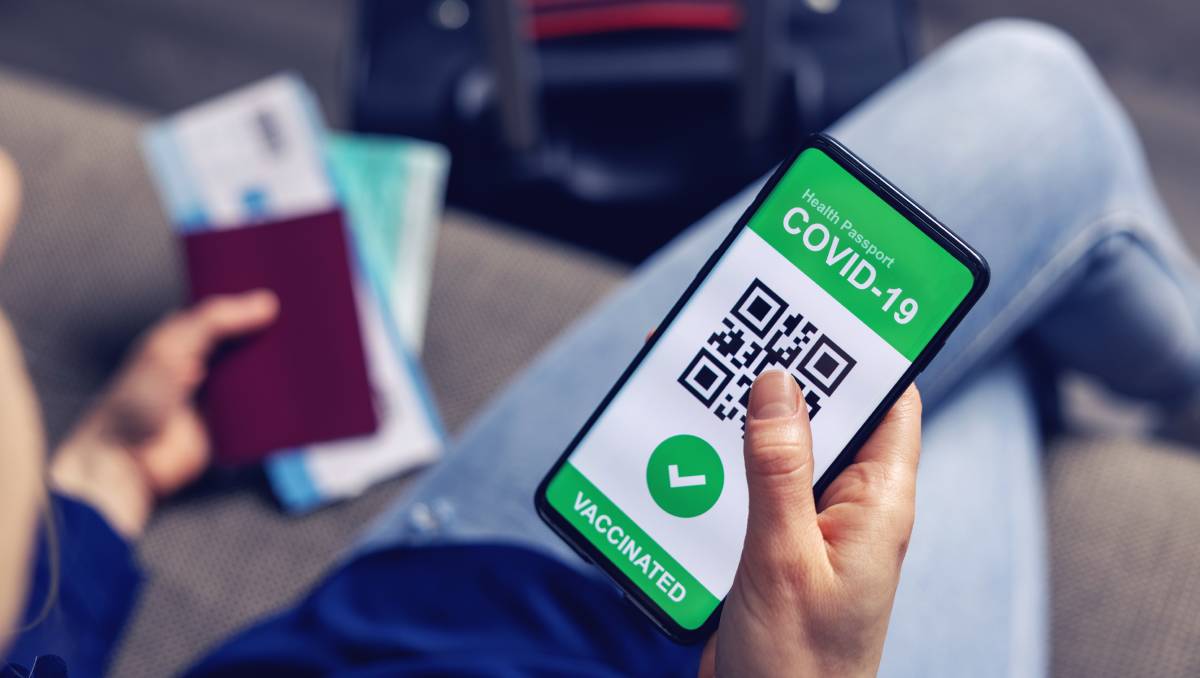Limpho Sello
BEGINNING next month, Lesotho will introduce Covid-19 passports under which sporting events, social activities and some services will only be accessed by people who have been fully vaccinated.
This was said by Prime Minister Moeketsi Majoro in a televised address on the Covid-19 situation in the country over the weekend. He also announced further relaxations to the lockdown including the resumption of contact sporting activities like football. In the more relaxed blue colour code of restrictions, premier league stadia will be allowed to host spectators at 50 percent of their capacity while A Division soccer matches will be allowed a maximum of 2500 fully vaccinated spectators.
Social gatherings are now permitted with much bigger crowds of up to 500 people while restaurants and night clubs are now permitted to host sit-in customers at 50 percent capacity provided they have been fully vaccinated.
Covid-19 passports are digital or paper documents that show that a person has been vaccinated against the virus. They could also help the holders to get into other countries and places where proof that one has been vaccinated is required. For instance, the United Kingdom has now removed virtually all African countries from its red list which stipulated a 14-day quarantine period for visitors into its territory at huge cost of more than M40 000. But valid vaccination certificates would now be required for anyone wanting to enter the UK.
Dr Majoro said the passports would help protect the nation against the deadly pandemic which had by yesterday infected a cumulative total of 21 481 people and caused 653 deaths.
“Last month, the government said it was contemplating the introduction of vaccination cards before people can access some services,” Dr Majoro said.
“The government has now identified some of these services that will require the vaccination cards. These include attending sporting events, political gatherings, entertainment, creative and cultural industries, entering liquor stores, restaurants, night clubs, gymnasiums, parks and other public recreational areas. This means that from 1 November, one will need a vaccination card to access these services.”
Dr Majoro said service providers had a responsibility to ensure that they only served fully vaccinated people upon production of the Covid-19 passports.
However, Lesotho Liquor and Restaurant Owners Association president, Motseki Nkaeane, feels that the government has acted hastily without consulting them.
Mr Nkaeane said the government should have consulted them to draw up a plan for the gradual implementation of the Covid-19 passports.
“While we are not against the introduction of the Covid-19 passports, we feel that the passports should have come into effect by January 2022 earliest. 1 November is too soon because the mass vaccination programme is ongoing and has not reached all the people in all districts.
“Implementing the measures by 1 November will certainly lead to the loss of business by our members. When customers come in and we demand the vaccine cards, they will simply go to illegal traders who do not comply with the laws of the country.
“This is really bad for our businesses. After all, we are still trying to recover from the restrictions which have negatively impacted on us over several months. We are not against the implementation of the vaccine cards because we know that this is for the good of our country. But it would be better if these measures were introduced early next year,” Mr Nkaeane said.


